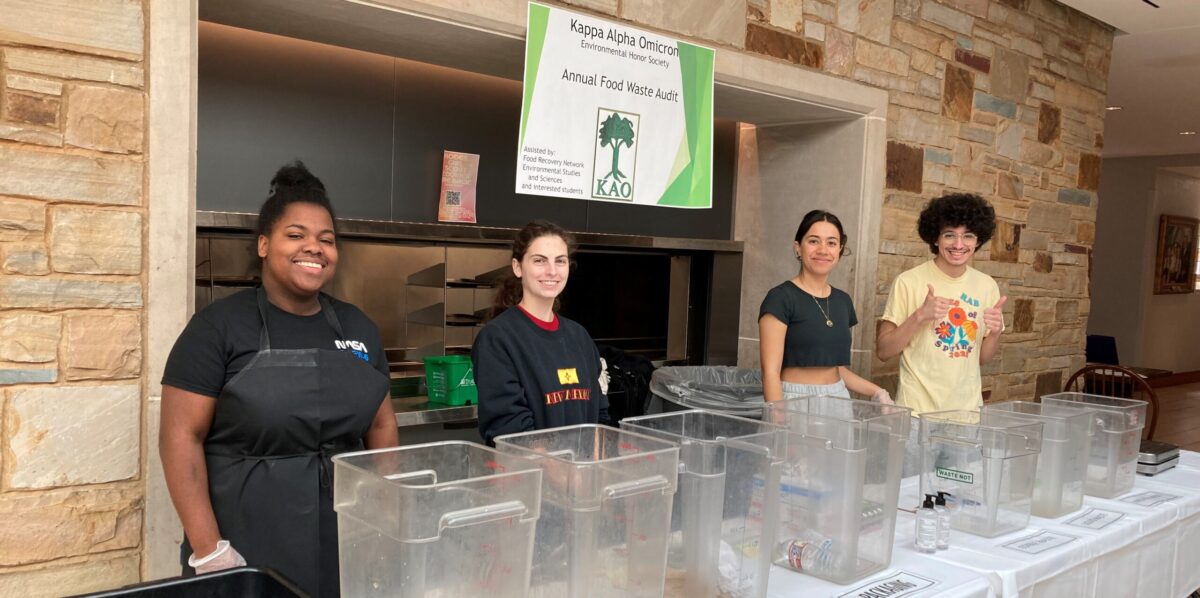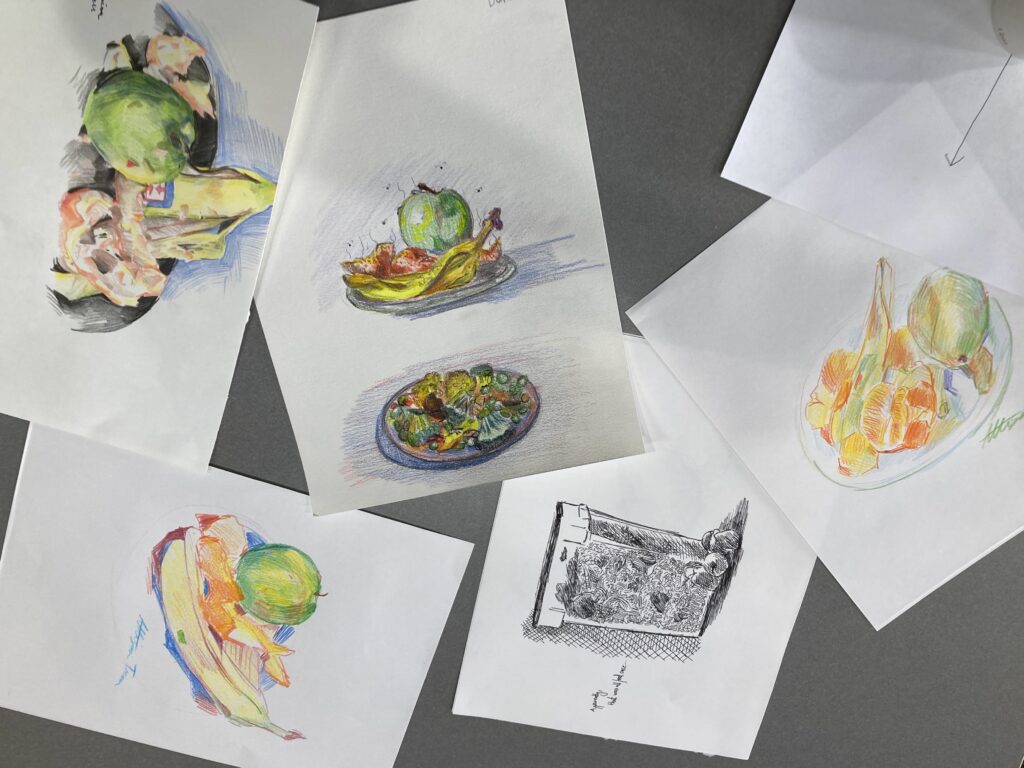Transforming Student Food Waste into an Opportunity for Creativity and Reflection
- by Elise Dudley

Rhodes College students pose for a photo during a weigh the waste event
The aroma of pizza crust, orange peels, chicken bones, and half-eaten sandwiches has become an all too familiar scent to Bon Appétit Management Company’s Midwest Fellow Elise Kulers and east coast Fellow Elise Dudley, who have weighed over 1,500 pounds of food waste produced by over 8,500 guests at colleges and universities this year. These food waste awareness events have spanned 16 colleges and universities across a dozen states throughout the East Coast and Midwest.
Weigh the Waste events have long been held by Bon Appétit Fellows to spark dialogue with students and draw attention to all the embedded resources, time, labor, energy, that go to waste when we waste food. Fellows host these plate waste audits alongside Food Recovery Network (FRN) student chapters, colleges’ Offices of Sustainability, and environmentally focused clubs.
Instead of setting plates on the dish return and watching their waste vanish on the turnstile, students are met with a table of labeled containers to sort their leftovers: edible food waste, nonedible waste, liquids, and trash. Students approach with an assortment of emotions from embarrassment to pride, while others are shocked by the volume of waste or inquisitive about how they can get involved on campus.
Students are encouraged to be mindful eaters, in all-you-care-to-eat facilities they’re reminded to be specific in asking for “the smallest piece” or “two scoops,” and that they can always return for second servings. Of course, the causes of food waste cannot be simplified to students overserving themselves, disliking a dish, and feeling hurried between classes. Consistent training on proper portioning and awareness of student preferences also plays a significant role. Bon Appétit accounts across the country are integrating food waste tracking into their kitchen culture with Waste Not, a back-of-house waste tracking system designed for busy kitchen environment to analyze the quantity, cause, and destination of food waste.
In 2019, Bon Appetit published a whitepaper in partnership with the Natural Resources Defense Council (NRDC), “Toward Cleaner Plates: A Study of Plate Waste in Food Service.” The study found that on average, 112 pounds of waste is produced per student per school year, which adds up fast. Our recent findings continue to support the need for innovation and education surrounding the challenges of food waste in food service settings. While our 2019 study (conducted across 20 accounts) discovered an average of 2.18 ounces of food waste per student per meal, this year we found an elevated average of around 2.72 ounces.
Several universities, such as Rhodes College in Memphis, TN and Emerson College in Boston, MA, conduct systematic food waste audits in their dining halls on an annual or semesterly basis, while other campuses are in the beginning stages of measuring and tracking student food waste data.
Driven by a desire to engage a wider audience of students through creativity, food waste education took a new form this spring at St. Johns College in Annapolis, Maryland. Fellow Elise Dudley partnered with SJC Art Club to host an unusual still-life sketching session. Instead of pristine peppers and waxy red apples, the subjects were trays of aromatic plate waste collected from participants’ peers during lunch.
After Elise presented on the global state of food waste, graphite, chalk, and charcoal began to fill sketchbook pages. While students drew, they reflected through conversation about how removed they feel from the large-scale systems that produce our food, the pervasiveness of consumerist culture, and how easy it is to never consider the impacts of our waste and where it ends up—polluting communities, waterways, and the environment, at large.

The colorful results of food waste sketching at Carleton College
The following month in Northfield, Minnesota at Carleton College, a similar event “Reflecting on Food Waste through Art” was hosted alongside Carls with Artistic Taste. Fellow Elise Kulers spoke about how Carleton and Bon Appétit work collaboratively to prevent and divert food waste from landfills. The food waste artworks were later exhibited for a Climate Action Week gallery in partnership with Sustainability at Carleton, extending the opportunity to reflect on food waste to a wider student audience.
As challenges surrounding food waste persist, Bon Appétit is committed to progressing creative and practical solutions to mitigating and diverting food waste.